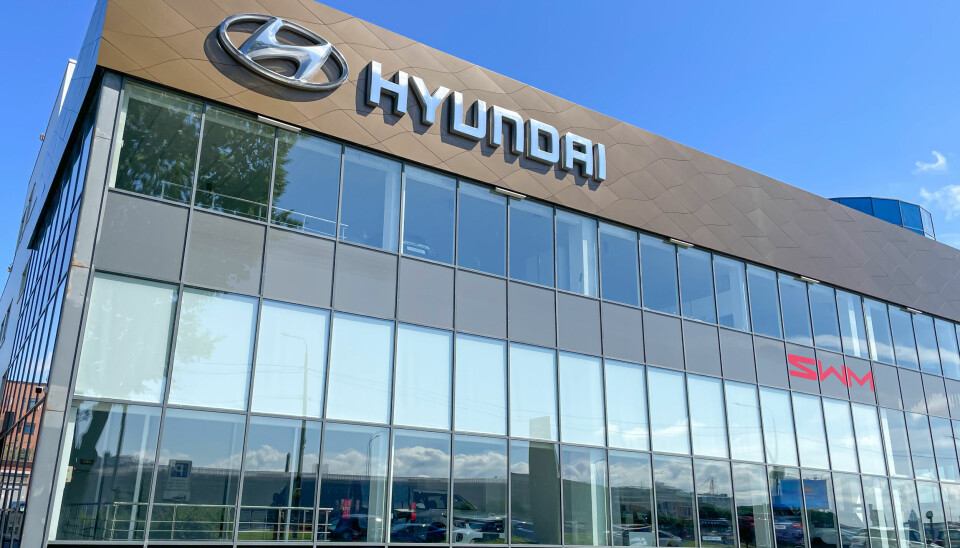Border policy
US immigration officials raid $7.5bn Hyundai–LG plant, repatriation deal struck after 300+ South Koreans workers detained

The battery facility, part of the broader $7.59 billion Hyundai Motor Group Metaplant America complex, is a joint venture aimed at building cells to power Hyundai, Kia and Genesis electric vehicles produced in the US.
On September 4, 2025, US Immigration and Customs Enforcement (ICE) conducted the largest-ever single-site immigration enforcement operation at the Hyundai–LG battery cell plant under construction in Ellabell, Georgia. ICE detained 475 individuals, of which over 300 were South Korean nationals.
The battery facility, part of the broader $7.59 billion Hyundai Motor Group Metaplant America complex, is a joint venture aimed at building cells to power Hyundai, Kia, and Genesis electric vehicles produced in the US. While Hyundai’s adjacent EV assembly operations remain unaffected, the construction of the battery plant has been paused indefinitely as investigations continue.
The workers were reportedly hired via staffing agencies and subcontractors to support highly technical phases of the facility buildout, particularly installation and commissioning of production lines. Details on how the workers may have breached immigration rules have not been released by authorities or the companies.
“Each individual was questioned on their status, their documents were checked, their backgrounds checked,” said Steve Schrank, special agent in charge of Homeland Security Investigations (HSI) for the states of Georgia and Alabama, in a press briefing.
“Ultimately in coordination with our experts and attorneys in the background, those that were found to be illegally present were detained and turned over to ICE enforcement and removal operations custody.”
Hyundai has initiated an internal investigation of suppliers and subcontractors, with North America chief manufacturing officer, Chris Susock, overseeing the site’s governance.
"We will conduct an investigation to ensure all suppliers and their subcontractors comply with all laws and regulations. Hyundai has zero tolerance for those who don’t follow the law," the company said.
Seoul secures workers' release
Since the raid, Seoul has negotiated the release and repatriation of its detained workers. They are set to return to South Korea via chartered flights under a “voluntary departure” framework.
South Korean Foreign Minister Cho Hyun will travel to the US on September 8 to manage diplomatic fallout and ensure fair treatment of Korean nationals.
“Let them train Americans - but legally”: Trump
US President Donald Trump urged foreign companies investing in the US to “respect” the country’s immigration laws in a social media post on Monday.
“Your Investments are welcome, and we encourage you to LEGALLY bring your very smart people, with great technical talent, to build World Class products, and we will make it quickly and legally possible for you to do so. What we ask in return is that you hire and train American Workers,”
Schrank noted that individuals entering the US on short-term or recreational visas are not permitted to engage in employment, and described the operation as a necessary step to protect American labour standards.
Trump’s administration plans to take similar immigration enforcement actions following the Hyundai–LG operation. White House border advisor Tom Homan stated that worksite raids will increase to hold employers accountable for hiring undocumented labour.
Tensions between localisation goals and labour enforcement
The raid has exposed a growing contradiction between the drive to localise EV manufacturing in the US and the global workforce structures often required to build and scale these facilities.
Automakers had previously been eligible for consumer tax credits of up to $7,500 per vehicle under the Inflation Reduction Act (IRA), provided certain thresholds for domestic battery content and final assembly were met. However, some provisions related to these incentives have since been repealed or revised, altering the compliance landscape for OEMs operating in North America.
Despite this shift, OEMs continue to invest heavily in localised EV production capacity across states like Georgia, where Hyundai, SK On, and Rivian are building or expanding operations to strengthen domestic supply chains and reduce geopolitical risk.
However, the highly specialised nature of battery manufacturing means that many OEMs initially rely on foreign engineers, technicians and installers to set up production lines, commission tooling, and train US teams.
Now, with construction halted and Hyundai temporarily suspending international travel for technical teams, there is growing uncertainty about how OEMs can balance localisation mandates with visa compliance and enforcement risks.





